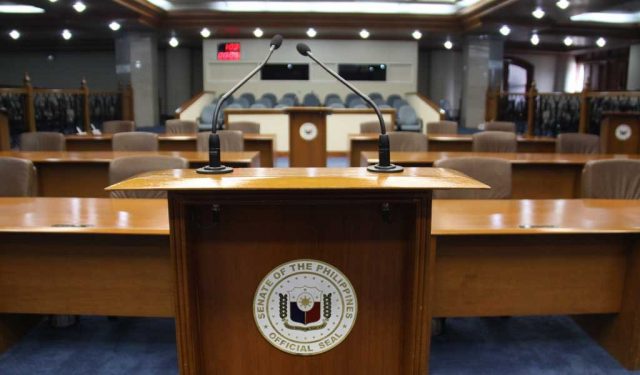Senators vow swift passage of 2023 appropriations bill

Alyssa Nicole O. Tan, Reporter
SENATORS at the weekend ruled out the possibility of a reenacted budget, vowing to swiftly pass the proposed P5.268-trillion national budget for next year.
“The passage is as guaranteed as Christmas happening on Dec. 25,” Senator Francis Joseph “Chiz” G. Escudero said in a Viber message. “The era of the reenacted budget is over. There is only one important deadline here: that the President signs it before the end of the year.”
“There has always been only one main hurdle in budgeting and that is the limitation imposed by funds,” he added. “No matter how you slice and dice the budget, you come up with the same conclusion — you need a bigger cake but you don’t have the ingredients to bake a bigger one.”
Next year’s budget is 4.9% higher than this year and is equivalent to 22.2% of the gross domestic product.
The Senate expects to approve the 2023 budget bill by mid-December, according to Senator Juan Edgardo M. Angara, who heads the Finance Committee.
“The Senate is on track with its budget calendar and we will work hard to finish on time without getting in the way of senators’ and the public’s right to be heard in the budget debates,” Senator Ana Theresia “Risa” N. Hontiveros-Baraquel said in a Viber message.
“We do not want to have a reenacted budget because it will cause more harm than good,” she added. “Based on our recent experience, it stifles economic activities, denies people needed funds for social programs and enables vast power to the administration to realign the budget.”
The government had to operate in the first few days of 2020 using funds from 2019 after the budget bill was delayed.
The government also operated on a reenacted budget in 2019, which economists blamed for slower growth of 5.5% in the second quarter from 6.2% a year earlier.
Ms. Hontiveros said rising food, fuel, feed and fertilizer prices have affected the local farms, transport operations and poor households.
“Consider the possibility of rising hunger as household budgets are squeezed,” she said. “The National Economic and Development Authority does not even have a 2022 baseline on hunger incidence and has not set up a monitoring system even in the face of unprecedented national and global food inflation,” she added.
“I hope I’m wrong, but there can be surprises in this area that might require a major reconsideration of short-term budget priorities,” the senator said.
Ms. Hontiveros also said it is difficult to spot appropriations that could be potential sources of corruption and abuse such as intelligence and confidential funds.
“Does the soliciting office really need it and should it be that large? Such budgets should be thoroughly scrutinized,” she said.
“Another challenge is proposing processes that would get things done faster and better such as local collaborations to fill in the backlogs in classrooms, housing, etc.”
The biggest challenge will be “ensuring that the national budget is responsive to the needs of the Filipino people,” Senator Emmanuel Joel J. Villanueva said in a Viber message.
He said the government should prioritize measures to address spiraling commodity prices, expensive medical treatment and lack of funding for social protection programs.
“I do not see any significant roadblocks that will derail the passage of the budget,” he said.
Senator Joseph Victor G. Ejercito expects minor delays in budget hearings as some resource speakers fall ill amid a coronavirus pandemic.
“There were instances where our resource persons could attend the hearings because they were coronavirus-positive,” he said in a Viber message. “We still need to follow health protocols in our hearings and deliberations. There are limits in the number of people who can enter the Senate and those who will attend the hearings in person,” he added.
“Though it is possible to participate in hearings online, it still makes a lot of difference when all our resource persons are physically present.”
Mr. Angara earlier said senators expect to finish committee hearings by mid-October and plenary debates by mid-November, leading up to the passage of the budget bill by late November.
Senators and congressmen are then expected to tackle disagreeing provisions, after which the ratified version will be signed by President Ferdinand R. Marcos, Jr. by mid-December.
The House of Representatives has finished budget hearings and started plenary debates on Sept. 20. It expects to pass its version of the bill by Oct. 1.
